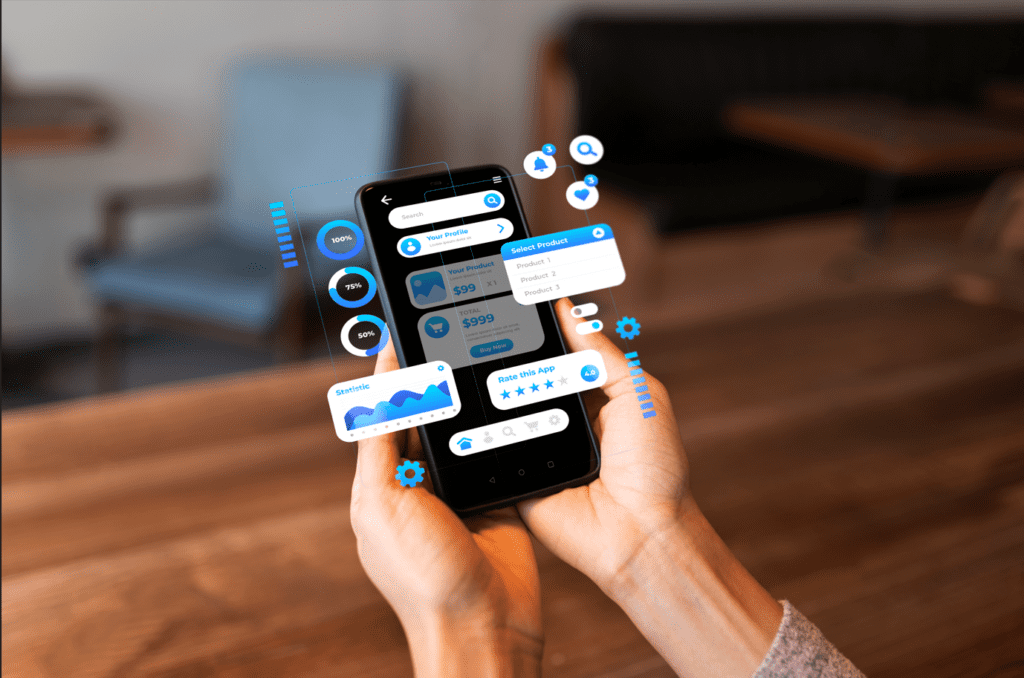See how marketing chatbots can increase ROI by increasing engagement and providing instant customer responses.
What is a chatbot?
A chatbot is an automated software application designed to simulate human conversation. Interact with users through text or voice, respond instantly, and perform various tasks. AI chatbots can understand and process natural language, allowing them to process complex queries and provide relevant information and services.
Chatbots come in many forms, including:
Rule-based chatbots: respond to specific commands predetermined by the developer. AI-driven chatbots: Use machine learning and natural language processing (NLP) to understand and adapt to user queries.
Importance of chatbots in marketing
Chatbots have become an essential component of modern marketing strategies. They offer marketers a way to efficiently connect with consumers, improve the customer experience, and streamline interactions.
Enhance customer engagement: Chatbots deepen customer engagement by providing instant responses and personalized interactions. 24/7 Availability: We operate 24 hours a day and are always available to respond to customer inquiries. Cost-effective: Reduces the need for extensive human customer support, reducing operational costs. Data collection: Collect valuable customer data and insights for better marketing strategies. Increase lead generation: Increase lead collection by interacting with potential customers and collecting their information.
Chatbots play a key role in improving customer engagement. They provide a dynamic and interactive way for businesses to communicate with their audiences, fostering stronger relationships and increasing satisfaction. Chatbots can quickly respond to common questions, provide recommendations, and guide customers through the purchasing process, creating a more personalized experience.
One of the most valuable features of chatbots is that they can operate 24 hours a day. Unlike human support teams, chatbots are available 24/7, allowing customers to receive instant support no matter what time of day it is. Continuous availability greatly improves the customer experience, leading to higher levels of satisfaction and loyalty.
Incorporating chatbots into your marketing strategy not only streamlines operations, but also provides a more consistent and enriching customer experience. The result is increased engagement, satisfaction, and overall effectiveness of your marketing campaign.
Introducing chatbots into your marketing strategy
Integrating chatbots into your marketing strategy can significantly enhance customer engagement and streamline your overall marketing efforts. This section details how chatbots can be used to create personalized customer interactions and how chatbots facilitate data collection and analysis.
Chatbots offer a unique opportunity to create personalized interactions with customers. Using AI and machine learning, chatbots can tailor their responses based on user behavior, preferences, and past interactions. A personalized approach makes customers feel valued and understood, increasing satisfaction and loyalty.
Key aspects of personalized customer interactions:
Greet users by name: Addressing customers by name makes interactions feel more personal and engaging. Customized recommendations: Based on previous interactions, chatbots can recommend products, content, or services tailored to your personal preferences. Customize responses: Chatbots can tailor their responses based on: Based on the user’s mood, choices and patterns.
Chatbots are important in collecting and analyzing customer data. The interaction between users and chatbots generates valuable insights that can be used to optimize marketing strategies. Collecting this data helps businesses understand their customers’ needs, behavior patterns, and preferences.
Key areas where chatbots can help with data collection and analysis:
User interaction history: Chatbots store conversation logs and provide insight into common customer questions and issues. Demographic data: Collecting information such as age, location, and interests helps us segment our audience for targeted marketing. Feedback mechanism: Gathering feedback directly through chatbot interactions enables your business. Evaluate customer satisfaction and areas for improvement.
In the field of marketing, chatbots can significantly improve return on investment (ROI). Two of the main factors contributing to this increase are cost effectiveness and enhanced lead generation and conversion.
Chatbots offer significant cost savings to businesses. By automating customer interactions, companies can reduce the need for large customer service teams. This not only reduces operational costs but also streamlines processes. The initial investment in chatbot technology is often offset by long-term savings achieved through reduced labor costs and increased efficiency.
Chatbots can also play an important role in lead generation and conversion rates. By engaging with users in real-time, chatbots can identify leads, provide personalized recommendations, and guide users through the sales funnel. Immediate interactions improve the user experience and lead to higher conversion rates.
Utilizing chatbots in marketing can lead to increased efficiency, improved customer interactions, and ultimately higher ROI. By understanding and implementing these technologies, companies can enhance their marketing strategies and achieve significant economic benefits.



